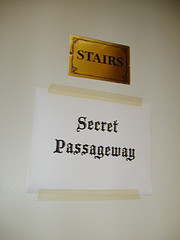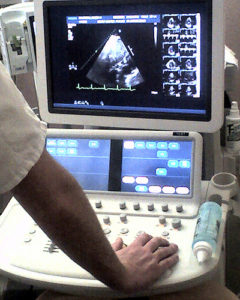
Why Wiscon?
I haven’t even left Madison. I intended to wait a few days after
returning to Seattle to write about my Wiscon experience. I’m sitting
in Michaelangelo’s coffee shop, where I intended to read some of the
books I bought. I sat down, pulled Feeling Very Strange
from my backpack, and then just looked at it. All I’ve got going
through my head is my experience, and I don’t think I can read. So I
write instead, though this won’t get published until I get home.
I decided to attend Wiscon after the kerfluffle last year over
what I wrote about Joe Abercrombie’s Before They Are Hanged.
Some commenters on Abercrombie’s blog accused me of … well,
I’ll just quote one:
Mr Rat sounds like he’s been brainwashed by the feminist
lit department at his university, who read oppression into every
interaction between men and women.
I thought this was quite amusing. I’ve never taken a feminist lit
class. Ever. I’ve taken only the Intro to the Canon type of literature classes,
and I don’t mean the feminist canon. I attended the University of
Idaho. Idaho! In the center of the whitest Congressional district in
the U.S. at the time. A state where the women’s groups that get any
attention are headed by Phyllis Schlafly. This was after attending
high school run by the Catholic church and only a decade away from
being an all boys prep school. Don’t even get me started on my
elementary and junior high education! There I was taught that
dinosaur fossils were planted by the devil’s minions to trick us.
The point being, no one has ever indoctrinated me in proper or
even improper feminist theory.
But afterward, I thought perhaps I should learn more. I subscribed
to Feminist SF – The Blog!. My friend Kim planned on attending Wiscon
last year and told me about it, encouraging me to go. Last year I had
mom’s illness and impending death to deal with, so I didn’t. Kim
attended and returned with awesome things to say about it. Earlier
this year, I decided to go.
Introversion and Culture
I’m not the most extroverted of people. A fair number of people
seem surprised that I am shy. I can fake outgoingness sometimes. The
best comparison I have to the trepidation I felt about Wiscon is my
experience going to India. I was stepping into a foreign culture. It
had values about which I was not familiar. It had unwritten rules
about which I was completely unaware. I went by myself, without a
protective posse. I stood out as not being part of the locally
dominant culture. All these things worked against me in India, and
all of these elements were present to some degree with attending
Wiscon.
I did two things (at least) though to make things easier on myself. My
first tactic I chose consciously. I would not open my mouth to
express any opinion in any panel programming. Questions were fine.
Requesting clarification I thought was safe. But I decided against
expressing any sort of opinion.
This goes back to something Nelson told me 15 years ago. Your job
is just to listen right now. It was a different context, but the
issue was the same as now. I am an opinionated guy, and I have an
instinctive reaction to spout my opinion to any and all who come
within earshot (or read my crap online). Regardless if I was asked for my opinion. Regardless
if I have any background information. Regardless if I knew the
reasons why other people had their opinions. I’m better than I was nearly half a lifetime ago, but I’m still pretty bad
about it.
That’s the intellectual reason to keep my mouth shut. It’s valid,
but the driving force was emotional. I fear being wrong. I fear being
attacked. I fear getting jumped on. My fear is not rational. Others
may have a perfectly rational fear of attack. I do not. I have lived
and learned from every personal attack. I’ve thrived even. Yet every
time I write something negative about a book or express an opinion
online, the pit of my stomach drops before I press publish.
The second choice I made was not conscious. I didn’t shy away from
controversial panel topics to attend, but I did avoid those with the
most inflammatory descriptions. The first panel I attended tackled
the topic of the portrayal of the working class in speculative
fiction. I’m really no longer working class, but I still identify
because I grew up in a working class family. I picked mostly
literature related topics. I picked topics with panelists whose names
I knew.
RaceFail floated as a prominent issue at Wiscon. The people
who were the most involved in RaceFail discussions on blogs were
either names I didn’t know well, or didn’t come to Wiscon. Writers of
color (i.e., those with the most at stake immediately in RaceFail)
that I’ve read and who were at Wiscon included Nnedi Okorafor and …
Nnedi Okorafor. And although RaceFail directly concerns literature,
discussion about RaceFail is one level removed from books. Keeping my
panels directly related to literature kept me one level away from
RaceFail discussions. I did attend one panel on multiculturalism and
thought it was great discussion, but I doubt it would register much
controversy compared to other rooms.
I don’t believe it was an accident that the things I consciously
thought about when choosing panels led me away from scary stuff. If I
go next year (and I’m leaning towards attending) I think I will
examine the choices I’ve made to make sure I’m not avoiding difficult
topics. Or at least if I am avoiding them it’s a considered choice.
I’m not sure whether my panel choices was a good thing or not. One
one hand, I didn’t freak myself out about a topic that won’t be
resolved for quite some time anyway. On the other hand, I learned
about 5% of what I could have learned. Had I thought more I might
have chose different.
Social interaction
People come back to Wiscon from all over the United States and the
world year after year. It’s not just a place for discussion of
feminist topics. It’s a place where people of like mind return for
fellowship or sisterhood (to use both gender loaded terms). It’s an
environment that can strengthen people’s resolve before returning
home to fight battles alone or in smaller groups.
There’s a drawback to that though. For the non-outgoing, there
isn’t a lot of support for integrating into the community
particularly in the first day or so, at least as far as I could tell.
Returning attendees eagerly embrace their friends from previous
years, rejoicing at the end of the interruption of their camaraderie.
Groups of friends unload their belongings and decamp to food or other
activities, leaving the less connected behind. I’m sure not everyone
experiences this, but I know I did and several people I talked to
related similar experiences for their first time attending.
Friday night I attended the First Wiscon Dinner which seemed to
have no support other than a line in the program guide. Ostensibly an
event where a few experienced hands would welcome first timers to
acculturate us, instead 25 of us newbies stood around at the
designated meeting point wondering what the plan was supposed to be.
We eventually split into three groups because the word from the
Madison local newbies was that close by restaurants wouldn’t be able
to handle large groups. I quite enjoyed the small group I dined with,
and chatted with a couple from my group throughout the convention.
I didn’t hide out in my hotel room. I purposefully planted myself
in the hotel lobby during breaks and periodically introduced myself
to people. None of those conversations lasted long nor did any of
those folks return to conversation with me a second time during the
first couple of days. I wasn’t dismissed, but I didn’t feel any real
engagement either.
The first time someone initiated conversation with me was Sunday.
M. Rickert engaged me in conversation Sunday morning, sensing I was
bewildered and not pulled into the thick of things, sharing her first
Wiscon experience from a few years ago. I don’t know the causes,
whether our interaction was the key or something else was working,
but I subsequently hooked into conversation with people better. Lunch
with Liz Henry and C-ko (C-ko being the one person I knew) and a
dessert table oddly magnetized to Seattleites for the guest of honor
speeches. Maybe I just felt more comfortable by that point.
Authors
One big reason to go to Wiscon was to find more good literature that I didn’t know about. I bought books and I got to meet some authors.
Though probably working off bad assumptions, I didn’t chat too
much with author panelists. I know they are real people. Most have
day jobs. But I still have them on somewhat of a pedestal, and I
didn’t want to turn into a fanboy in the hallways. And neither could
my puny brain come up with reasons to chat with them or with other
panelists. In retrospect, the panel topic would have been a great
icebreaker for me to chat with any panelist. Though in most cases I
couldn’t have chatted coherently on the panel topics immediately
afterward anyway, even just to ask questions.
SignOut on Monday is kind of the designated fanboy event. A fair
number of the authors in attendance set up at tables so folks can get
their books signed. I bought a dozen or so books by authors who
attended and got them signed at SignOut: Geoff Ryman, Ellen Klages,
David Schwartz, M. Rickert, Nnedi Okorafor, John Joseph Adams, Carol
Emshwiller, and Nisi Shawl. In most cases I chatted a bit
with them as well. Other than guests of honor Ellen Klages and Geoff
Ryman, most didn’t have lines of more than one or two. Of course, all
were friendly. I knew this, but I still have a twinge of surprise. Cue Bart Simpson: I will not put authors on pedestals. I will not put authors on pedestals.
I made a point to pick up something by M. Rickert to thank her for chatting with me Sunday.
That turned out to be Feeling Very Strange, an anthology of slipstream
stories. I’ve never read much slipstream though.
I chatted with David Schwartz and M.
Rickert (sitting side by side) talked with me about the genre. I tend
not to like literature I don’t understand. Slipstream is designed
around cognitive dissonance; by definition it will be hard to
understand. But I wanted to try it out because I hadn’t done so
before, and M. Rickert writes slipstream. I may get
something out of it, but I’m pretty sure the pieces that don’t work
for me really aren’t going to work for me.
At the Sunday night Tiptree Award ceremonies, Nisi Shawl received,
instead of the traditional Tiptree chocolate, a pie. I thought I
recognized a kindred pie aficionado, so when I got her to sign Filter
House, I asked her about the chocolate replacement thing. Turns out
she gets migraines from chocolate, and thinks pie is the best thing
ever. So I mentioned my own predilection for pie and how I made
friends through Pie Night. Her response: Where? Can I come? I knew
she lived in Seattle, and kind of hoped she’d want to come. Fanboy me
emerges. To tell the truth, I haven’t yet read anything she’s
written, but she seemed like one of the nicest and most thoughtful
people on any of the panels I attended. So I wanted to get to know
her. Hopefully she’ll actually be able to come to the next Pie Night.
Geoff Ryman also impressed me. I’ve only really read his story
V.A.O.
before. I’m fairly familiar with his Mundane Manifesto and the
movement he’s trying to start. I appreciate the stance, but I enjoy
non-Mundane SF too much to stick to stories that fit that mold only,
as he has advocated at times. I attended one panel he was on, and had
him sign a book at SignOut. Despite having only the limited
interaction, when he ran into me on the streets of Madison this
morning, he stopped to chat with me. Nothing substantive, but I was
nevertheless impressed. There are a lot of people at Wiscon and not
all of them can register on a person’s consciousness.
Wiscon Programming
I’m not normally one to gush
about anything, but the panel topics were chock full of substantive
discussion. Sure, a few of them were fluff, and I enjoyed those of
that ilk that I attended as well. In most time slots I circled at
least two or three possible panels. Each panel had enough content to
generate at least one separate post. Some had enough for two or
three.
Not being a con person, I don’t know how much Wiscon’s panel
selection/assignment method differs from other SF conventions. Panels
have a mix of professionals and fandom. Any attendee can put their
name in the hat ahead of time to be on panels. I don’t know how the
programming committee selects folks, but it seemed to work out well
for the most part. In only one case did it seem like a panelist was
outclassed by the material and the rest of the panel.
In a couple of cases, the moderator could have done a better job
leading the panel. Some kind of just were there, and their panels
tended to ramble more. A couple panels had members who just had to
talk. The moderator for one of those never showed. In the other case,
the moderator was the person who dominated the discussion. Neither
person ruined the panel, but I would have liked to have heard more
from some of the other panelists. Three moderators were outstanding:
Fred Schepartz on the working class, L. Timmel Duchamp on book
reviewing, and Jesse the K on feminist/leftist SF book groups.
Next year?
I can’t say I’ve found my tribe yet. I don’t bond deeply, quickly
enough to make that assertion. I have found kindred spirits and
content that serves my intellectual craving. I felt fulfilled like I
haven’t in a long time. There’s something about engaging in deep
discussion that I enjoy. About books no less. I read a lot. It’s hard
to find people who read as much or as widely as I do. Wiscon is full
of people who outclass me in that respect. Full of people who
outclass me in a lot of respects. That’s stimulating.
Next year’s Wiscon guests of honor or Nnedi Okorafor and Mary Anne
Mohanraj. I really liked Zahrah the Windseeker, Nnedi’s
young adult novel. Her manner inclines me to turn into a fanboy.
She’s nice, and incredibly positive. It took a couple minutes of cajoling to get
her to say she didn’t like Twilight. To paraphrase her: I don’t like tearing down
authors who are just doing their thing.
I haven’t read Mary Anne
Moharaj’s fiction. Mary Anne wrote
a couple of thoughtful pieces for John Scalzi’s blog that made clear to me
some of the issues of RaceFail. I hadn’t mentally connected her to those pieces
until this morning.
Both guest of honor selections make me want to go next year.
Photo Wiscon 32 by Liz Henry used under a Creative Commons By-Nd 2.0 license.


 What we’d like to find is a simple universal remote. In other words, one that has only a few buttons and doesn’t require switching from “device” to “television” to use properly. Volume and power operate on the television; channel changing operates on the satellite receiver. Automatically. You’d think something like that would be out there. I’ve wanted something like that myself but never found it, though I haven’t looked particularly hard. It’s necessary for dad, or he’s going to go weeks without TV sometimes when neither my brother or I can get there right away. Before mom died, this wasn’t a problem; she’d fix things.
What we’d like to find is a simple universal remote. In other words, one that has only a few buttons and doesn’t require switching from “device” to “television” to use properly. Volume and power operate on the television; channel changing operates on the satellite receiver. Automatically. You’d think something like that would be out there. I’ve wanted something like that myself but never found it, though I haven’t looked particularly hard. It’s necessary for dad, or he’s going to go weeks without TV sometimes when neither my brother or I can get there right away. Before mom died, this wasn’t a problem; she’d fix things.
